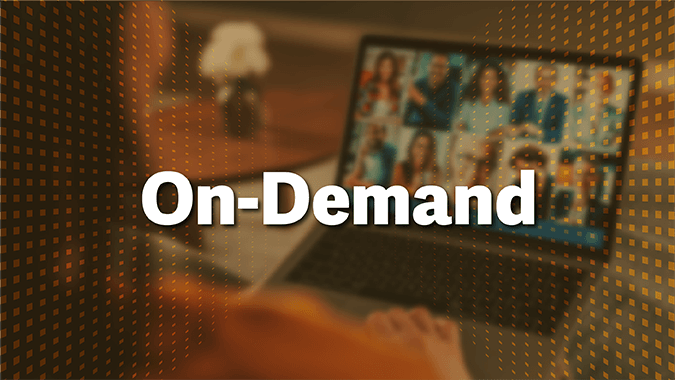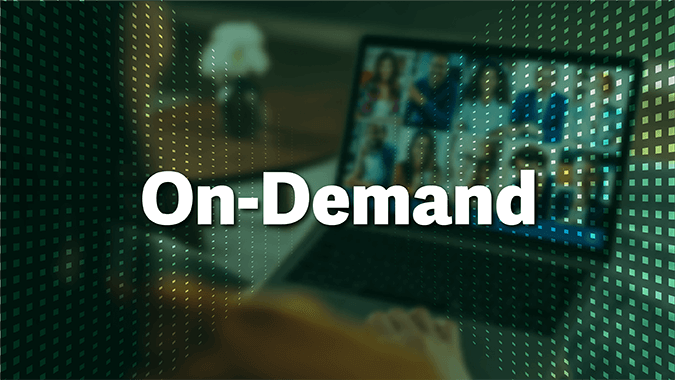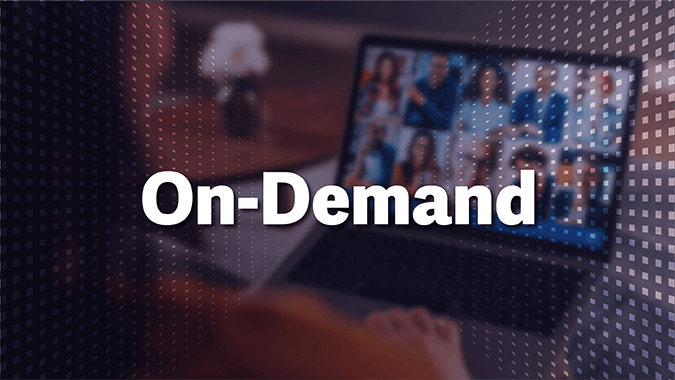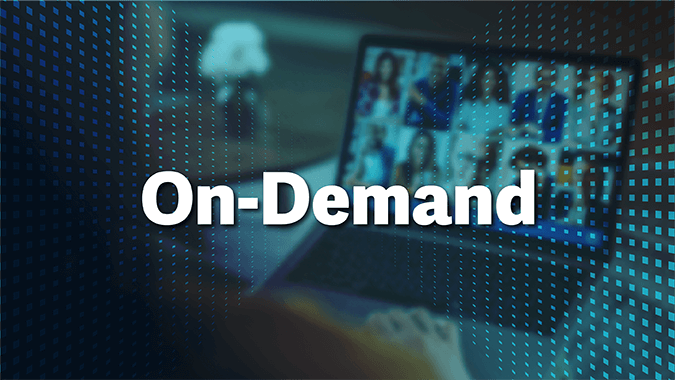
You’re Welcome to Send a Thank-You Note
- Published
- Dec 12, 2019
- Topics
- Share
In this Friends of the Firm (FOF) podcast, we examine one of those little things that can make a big difference: the thank-you note. FOF Director shares his tied-and-true tips for what should be included in a thank-you note, the proper length, when to send one and more.
Transcript
Dave Plaskow: Hello and welcome to the Friends of the Firm podcast. We hope to provide you with the creative solutions for finding the career opportunities or executive staffing solutions you're looking for. I'm your host Dave Plaskow and with us is EisnerAmper director who leads our Friends in the Firm program and the alumni program. Today we'll discuss why a thank you note matters.
NP: Hello Dave. Great to see you.
DP: Yeah, so this is now what our second or third podcast and they haven't thrown us off the air, so we must be doing something right. I saw in Seinfeld the other day where one of the characters jokingly said, "Manners the glue that holds our society together." But there is a truth to that, isn't there?
NP: Absolutely. Dave, particularly given the fast paced technologically advanced world that we live in today. I mean, people often remember extreme encounters such as the ones that are really great or the ones that are absolutely awful, but wouldn't you want to be known for the former?
DP: Certainly. And as far as our discussion today on thank you notes, job interviews certainly come to mind for a thank you note, but there are other business instances where you might want to send a thank you note. Give us some of those.
NP:Absolutely. So post job interview, I mean that's a given, right? I've interviewed candidates, whether it be on behalf of my clients or whether it be here at EisnerAmper and if someone doesn't send a quick thank you, whether it be an email, a quick email note, or even a handwritten note, which we'll get into later. But if they don't acknowledge the fact that you took time out of your day to sit down with them and have a conversation, for me, that's definitely strike one.
DP: It's conspicuous by its absence.
NP:Absolutely.
DP: Yep.
NP:Absolutely. Now there are a couple of other instances where you absolutely should write a thank you note. So we said, job interview, yes, that's a given. A new or a longtime client.
DP: Sure.
NP: Right? One, if a colleague of yours, an employee of yours goes above and beyond, please say thank you. And it's wild. Those two words, just saying it and obviously meaning it can really go a long way, but if you don't, as you mentioned before, if you don't say it, it can actually be detrimental to a relationship.
And then lastly, someone invites you to an event, a gala, some type of outing, professional outing or social outing, just saying thank you. What I've also learned, it's funny, Jay and I had a quick conversation before I came. I'm hosting a luncheon down in Dallas next week and I mentioned there's a venture capitalist firm that I invited.
And the gentleman initially said, yes, accepted the invite, was all in to come and then a deal took him away from being able to attend the lunch. And Jay had a great point. And I agree with this. Sometimes just the invitation, the fact that you invite someone to an event or to a lunch, even if they say no, the fact that you were thinking of them can go a long way.
DP: Absolutely. Now, as with any type of writing, there's an art to it. What elements should comprise an effective thank you note?
NP:Absolutely. So typical sales answer, and I've said this before, it depends, right? It's not a one size fits all. But typically I say short and sweet. No one wants to read a five paragraph email on their phone where they're scrolling for 10 minutes. No one wants that. Short and sweet. Reference what was discussed, whether it be an interview, whether it be it from a networking event, a couple quick reminders or tidbits from the conversation that says, okay, I'm going to jog Dave's memory, so he remembers exactly who I am.
So short and sweet, be authentic. Absolutely be sincere. Personalization. So, make it yours. No one wants to see a template. I've seen this where I get a thank you email from someone and they address me as Michael. Right? Because they said that to my colleague Michael, because they also interviewed with Michael and they're referencing things from their conversation with Michael versus their conversation within NP. Right. So definitely personalize it.
DP: No "Dear: fill in your name here."
NP:Right, exactly. And then the other piece too is getting someone's name right. So it's so funny we think about it as being the most basic thing. Get your name right. My name is NP Pierre. Yes. It's a long name. A lot of consonants, not many vowels. But in our email server, in our email system, it comes up as Pierre comma NP. Can I tell you, I've never been called Pierre more times than working here at EisnerAmper and it's not EisnerAmper's fault, right.
When I was in grammar school, if you saw a comma that meant it was last name first, right? I mean it was pretty easy. But anyway, people call me Pierre all the time. And when corresponding with people via email, via text, whatever it is, in this technological age that we're in, you have to get people's name right. And if you're not sure, just check. It's on LinkedIn. It's in my signature. You can Google it, right. Get people's name correct and accurate.
DP: There's no reason not to get it right. I mean it's a little thing, but it's a big thing. So how long after the occurrence, job interview, event, dinner party, what have you, should you send a note?
NP:Yes. So I have a 24 hour rule. So if I meet you at an event, we have a conversation or even a job interview, you have a 24 hour window, and it's counting down from when you walk out the door, right? You have 24 hours to kind of send that note. Now listen, rules, you can bend rules, right? You can bend a rule. You can kind of maybe go a little bit, if it's 24 hours and two minutes is it bad? No. But if you have a really, really good conversation, it's like anything else.
If you have a really good meeting, a really good conversation and you're excited and there's a lot of momentum and you discuss five or six things, you can send it immediately. You can send it on your bus ride home from your iPhone or your Android. You can send it when you get home, which could be a couple hours later. But if you send it a week later, I've forgotten about you, right?
You've lost the momentum and we spoke about earlier, if you just kind of leave something out, how people get offended or feel slighted. I've had people say that, "Oh my gosh, it got stuck in my draft folder." Let's be honest. If you are unemployed and you are going for this big job, you go to the interview, you think you absolutely rock it, and then you don't send a thank you note and you don't hear from the employer ever again.
Now they call it ghosting, right? If that happens to you, how do you feel? You don't feel good. So now be empathetic and put yourself on the receiving end. If you're the employer looking to hire, let's call it David in business development and my business development guy can't write a thank you, how are you going to conduct business in the marketplace?
DP: Strike while the iron is hot.
NP: Absolutely.
DP: Yep. Okay. Now, I'd love to romanticize the idea of the thank you note where someone is sitting down at a lovely desk with a quill pen and an inkwell and nice paper writing a thank you note. Doesn't always work that way. But talk to us about using technology. Is a thank you email acceptable? Is it cutting corners? Is it cheating?
NP: So it's definitely not cheating, it's definitely not cutting corners, it's expected. So the email is a given with regard to follow up. If you're interested or want to have a business relationship with a person, if you want to get that job, if you want to make a great impression on that client, right. So what I do with a lot of my prospects who hopefully become clients, I take really, really copious notes, right?
So I take great notes, I reference top things from the meeting in the thank you note. That's helpful, right? If I say I'm going to follow up on these four or five things, I actually put those follow-ups in the email so everyone sees it. So the email is a given. Now part two with regard to follow up, a lot of people are on LinkedIn now. Definitely send the person a note on LinkedIn, absolutely. And then if you really want to get fancy as they say.
So it's funny. Back in the day. Well for me, I'm 35 right. But back in the day I had AOL. Okay. And the cool thing about AOL, when you signed in, if you had an email it would say, "You've got mail," right. And that used to be the coolest thing. If I had mail, I'd race to my computer and my mom would be upset because you couldn't use a phone because we didn't have DSL and all that stuff but, or Wi-Fi that we have today.
But I actually clogged up the phone line when I was on AOL, but I heard "You've got mail", and it would say, hey NP, and that's it. Like hey, how are you? And I would respond back, right? And we'd go back and forth. Now, Oh and by the way, if I had mail at home, like actual snail mail, eh, it was kind of like, oh my gosh, it's too much.
Right? I loved to get my emails, because I didn't get a lot of emails. I got a lot of snail mail. Fast forward 15, 20 years later, I have email accounts I've had to close because Google tells me that I need to buy more space. 90% of it is junk, right. I get too many emails. I miss emails now, right. Now when someone sends me a thank you note in the mail, I'm just as excited as I was 20 years ago when I went on AOL and it said, "You've got mail."
DP: Because it stands out.
NP: Absolutely.
DP: Because nobody else is doing it.
NP: Absolutely.
DP: Right.
NP: So it's funny how these cycles just kind of repeat themselves. But anyway, the point is, if someone sends you a thank you note via snail mail, what do you typically do? You absolutely open it, yes. And then you kind of put it on your desk.
Kind of to show it off that someone wrote me a thank you, right. And imagine if you would print out an email, a thank you email. You would never really do that and show that off. But if it's a handwritten note, an expensive or a very, very nice card, very, very nice type of paper and someone wrote it with their hands, and you can tell, it makes you feel good and it's memorable.
DP: Right, sure. You're taking it that extra step, you're putting more thought into it. You're trying to stand out from the crowd. I'm a big fan of it, I think if you have the time to do it, do it.
NP:Right.
DP: So NP, what's going on with Friends of the Firm?
NP: I thought you'd never ask. So Friends of the Firm is rocking and rolling. So we have about 90 openings posted on our website, that's four more than last month. So we send out these alerts twice a month for our members. And then once a month I send out an email to all the partners internally and some of my colleagues regarding what's going on. And we actually had a Friends of the Firm placement last month that led to a business opportunity.
We made a placement at the Montessori school. We actually placed one of our alum as a CFO there and they were looking for a new auditor. So we actually got to submit a bid very soon after making the placement, which was great. Part two, we've actually had six Friends of the Firm members land on their own. So what's cool about Friends of the Firm is, of course we'd love to place everyone, right? It's almost impossible.
But what's really cool is when a Friend of the Firm member actually comes back to us and says, "Hey, NP, Isabella, thank you so much for helping me. While I was kind of down and out and looking for a job, I applied to a few jobs, maybe didn't get any offers through Friends of the Firm, but I landed this new job as a CFO. I'm at XYZ company, you guys are great. While I was unemployed, we'd love to try to figure out a way to kind of get you guys in, whether it's from a tax or audit standpoint."
So I think it's great that Friends of the Firm members who find jobs on their own actually come back to us and tell us where they are. It's a testament to the program, to the fact that these individuals feel connected to us and we're really building a strong relationship. And then lastly, we have a holiday mixer coming up in December.
The date is to be determined, but please look out for our upcoming holiday mixer. Be sure to check out Friends of the Firm. We have new job openings every day. And thank you for your time.
DP: Okay. So NP, it makes me think you're in an interesting unique position to see what's going on in the job market through Friends of the Firm. Now what are your impressions? Is the job market going to stay good? There's been talk of a recession. Do you see the job slowing down? What's your perspective? I know you're not an economist, but what are you seeing? What are your thoughts?
NP:So thank you Dave. So the market is absolutely hot with regard to staffing and employment. We are seeing record low unemployment rate of 3.7%, which is lowest since 1969 and from the standpoint of the pulse that I'm feeling with regard to the Friends of the Firm members and some of our clients, the market is hot, the market is tight.
Now, when I say tight, meaning talent, the candidates absolutely have a lot more leverage than they had before, because since there are so many companies looking to hire individuals, right? CFOs, controllers, HR executives, and those people are aware of that. The really, really good candidates don't stay in the market very, very long. So what we're finding is that if, when we talk to our clients, if they find or meet with someone that they really, really like, we ask them to make decisions in a timely fashion.
If you're waiting two to three weeks after meeting someone who you thought was great, odds are they won't be available two to three weeks later. So we're telling our clients to move in an expedited fashion. That's one. Two. We're also telling our candidates not to settle, because they may have a great interview with a company who might say, "Okay, well you've been unemployed for six months. Maybe you would take 10% less than you were making before," and that's not necessarily the case. So it's a tight job market. Unemployment's super low. I'm not sure how long it will remain, but it's a strong economy and we're seeing people get jobs left and right.
DP: Okay, good. Well that sounds like prudent advice and a good note to end on.
NP:Awesome.
DP: All right. I'm not going to send you a thank you note, but I will thank you for giving us this valuable information. Keep up the good work.
NP: Awesome man. Thank you.
DP: And thank you for listening to the Friends of the Firm podcast as part of the EisnerAmper podcast series. Visit EisnerAmper.com for more information on this and a host of other topics, and join us for our next EisnerAmper podcast when we get down to business.
Also Available On
Contact EisnerAmper
If you have any questions, we'd like to hear from you.
Receive the latest business insights, analysis, and perspectives from EisnerAmper professionals.




